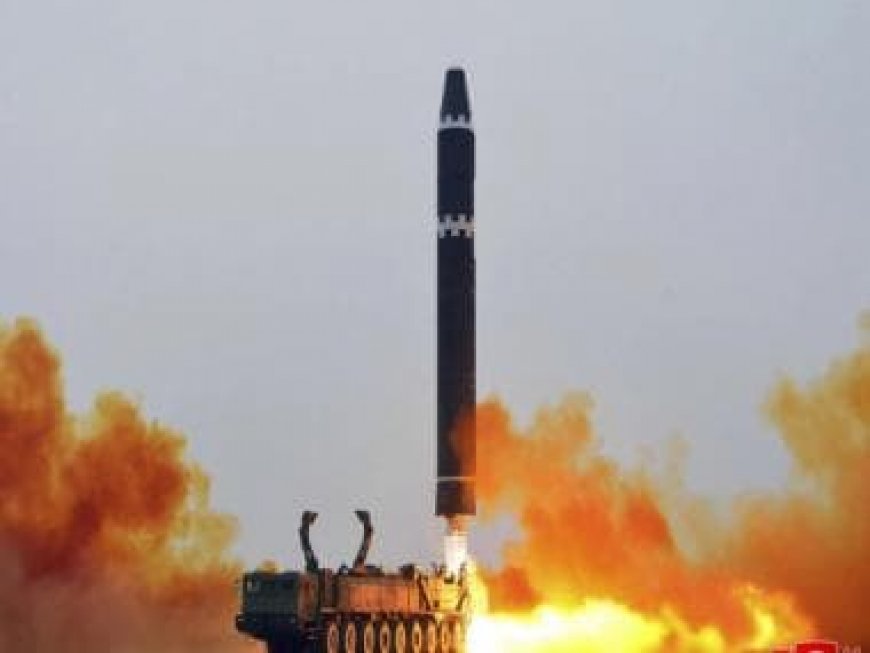South Korea 'not interested’ in nuclear competition with North Korea
South Korea 'not interested’ in nuclear competition with North Korea

Despite North Korea’s increasing missile operations, a recent poll shows that support for South Korea’s efforts to develop an independent nuclear programme has significantly decreased.
Support for such a shift has substantially decreased as the population has become more aware of this subject and its potential implications.
The results of a study performed by the Korea Institute for National Unification (KINU) indicate that public support for South Korea’s possession of nuclear weapons has significantly decreased.
According to the report, which was published on June 5, support for a domestic nuclear arsenal in South Korea has decreased from a peak of 71.3% in 2021 to 69% in 2022 and even lower as of last month to 60.2%.
These data show a definite decline in popular support for South Korea developing its own nuclear weapons.
Given North Korea’s increased frequency of missile launches and weapons tests—which have exceeded 100 since early 2022—and the current conflict in Ukraine, which has caused countries to reevaluate their defence capabilities and plans, the fall in support can be considered as unexpected.
However, in recent years, the once-outside-the-mainstream notion that South Korea would develop its own nuclear arsenal has acquired considerable traction.
This is due to growing doubts about the United States’ determination to put Seoul’s safety before that of American cities like San Francisco, especially in light of North Korea’s improvements in its nuclear and missile capabilities, which have put American cities within striking distance.
The 1,001-participant survey, which was conducted between April 15 and May 10, may reflect the effects of the “Washington Declaration” made public on April 27.
New measures to counter the nuclear dangers posed by North Korea were stated in this agreement between the US and South Korea, including increased cooperation on US nuclear strategy with regard to Pyongyang and routine deployment of American strategic assets in the area.
The proclamation was significant because it made clear Seoul’s position against developing domestic nuclear weapons, which marked a striking break from President Yoon Suk-yeol’s prior consideration of this possibility in the months prior to the accord.
Since it probably influenced public opinion regarding South Korea’s nuclear ambitions, the impact of this declaration on the poll results cannot be disregarded.
The US placed nuclear weapons in the South during the 1950–1953 Korean War, but took them out in 1991 when North and South Korea decided to declare the peninsula nuclear-free.
Restoring US tactical nuclear weapons in South Korea has received some support over the previous few years, according to evidence.
But according to the most recent poll, support for restoring American tactical nuclear weapons to Seoul significantly declined during the same time span, falling from 61.8% in 2021 to 60.4% in 2022 and 53.6% as of May.
This change in popular thinking has taken place as China’s nuclear arsenal is growing and North Korea is testing ballistic and cruise missiles.
Concerns in South Korea are increased by Pyongyang’s most recent aggressive acts. Kim Jong-un, the supreme leader of North Korea, has already announced plans to mass produce nuclear-capable missiles and changed the nation’s nuclear strategy to allow for the potential of preemptive strikes in the early phases of crises.
In addition, the study found that 74% of participants thought Japan was likely to pursue building a nuclear arsenal.
With a remarkable 22-point discrepancy from the 52.6% who thought Japan has the right to acquire such weapons, this proportion sticks out significantly.
Japan is largely regarded to have the technical know-how required to construct its nuclear arsenal, despite being the only country to have personally experienced the terrible effects of nuclear bombs.
But Japan’s Three Non-Nuclear Principles categorically forbid the development, acquisition, or use of such weapons. These guidelines represent Japan’s unwavering dedication to refraining from nuclear weapons-related activity.
However, experts predict that Seoul would suffer serious repercussions if it continued to grow its nuclear arsenal, making South Korea an outcast in the world and making it the target of heavy sanctions.
It might result in more penalties being applied by its allies, partners, and the larger international community.
Such a choice would have serious consequences since it would jeopardise attempts to prevent nuclear proliferation and upset the region’s delicate power balance.
Read all the Latest News, Trending News, Cricket News, Bollywood News,
India News and Entertainment News here. Follow us on Facebook, Twitter and Instagram.
What's Your Reaction?



























































